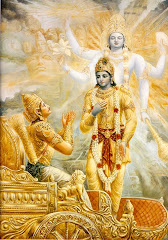This is my second Jeeves and Bertie novel and I am already
an incorrigible Jeeves enthusiast... all ready to share my thoughts, yet again.
I'm also quite fond of Bertie Wooster. What ho!
Thank You, Jeeves is a Jeeves novel by P.G. Wodehouse, first published in the United Kingdom on March 16, 1934 by Herbert Jenkins, London, and in the United States on April 23, 1934 by Little, Brown and Company, New York. The story had previously been serialized, in the Strand Magazine in the UK from August 1933 to February 1934, and in the U.S. in Cosmopolitan Magazine from January to June 1934; it would later appear in the American Family Herald & Evening Star, between March 24 and August 11, 1937.
In Thank
You, Jeeves we encounter a host of characters. Not that they are total
strangers to us; I, for one, have already made my acquaintance with them in Carry
on, Jeeves. But in this novel we get a bit more peek into them, their
lives, eccentricities and all.
...And we
get to say hello to the young Bertram Wooster's banjolele. This current flame
of his (musical instrumentally speaking) lands him in some serious trouble of
the cantankerous kind - with assorted neighbours, etc. But the proverbial sky
falls when the usually unflappable Jeeves too decides to turn flappable and bids adieu - at short notice.
All 'coz
Bertie decides to gallantly stand by his banjolele. Very
Bertie-like, I tell you.
Jeeves finds work with Bertie's old friend, Lord "Chuffy"
Chuffnell. Rather, Chuffy engages him without wasting a precious moment (i.e. as
soon as he learns that Jeeves intended to leave Bertie). Clearly: Jeeves'
reputation precedes him and is widespread.
Bertie too (very thoughtfully and innocently) travels to
one of Chuffy's cottages in Dorset - in order to continue practicing his banjolele-playing. Why to one of Chuffy's cottages in Dorset of all places? So as to avoid upsetting his city neighbours.
Btw, the banjolele
is universally renowned as the banjo. But since I had not heard of the
former - the rather exotic-sounding name before, I take it that one never
ceases to learn. Even from a musical instrument whose rather 'melodious'
strains (as coaxed out by the one and only Bertie) invariably induce insomnia
in all two-and-four-legged creatures within the vicinity. And perhaps even in
the potted variety. God bless the banjolele, or rather, the hand that
plays it.
However,
young Bertie is not without his virtues. He seems to be a first-rate magnet and
a repellent - all rolled into one; as far as the female of the species is
concerned. The sheer number of distaffers that have flitted in and out
of his life is enough to teach the first and second graders the
fine art of counting (addition, subtraction, multiplication, all included).
But this book almost entirely concentrates on Pauline
Stoker - Bertie's sometime fiancée, the engagement having lasted less than 48
hours. All thanks to some rather convincing glib-talk by the permanently
irascible "nerve specialist" Sir Roderick Glossop - who, in this book, is well
and truly under the spell of the Dowager Lady Chuffnell.
As you know, Lady Chuffnell is also Chuffy's Aunt Myrtle, a
formidable lady-ship and the owner of a rather pestilential son -
Seabury. Guess, love is blind. Or perhaps it has something to do with
birds of a feather and all that.
Speaking of love, let's get back to Pauline.
Bertie's sometime fiancée - Pauline - is not the type to
mope around. She has admirably moved on, and even transferred her
affections to Lord Chuffnell (aka Chuffy), the master of Chuffnell Hall, in
Chuffnell Regis, a hamlet containing more Nosey Parkers to the square foot than
any other spot in England.
Chuffy, as we know, is a childhood chum of Bertie. And
Bertie too has taken up residence in one of Chuffy's cottages at precisely the same time - in order to
continue practicing his banjolele-playing. Now, if this doesn't
prove that the world is truly a global village, what will?
No,
Bertie isn't crestfallen either; in fact he is quite the enthu-cutlet
and pledges all possible help for this union to materialize. He actually goes
all out to make it happen. Even taking on the possessor of that
formidable-sounding name, J. Washburn Stoker - who is also very much the even
more formidable, ever vigilant and overprotective father of the lissome Pauline Stoker. Here
Stoker Sr. appears as the fairly recent inheritor of some 50 million dollars, thanks
to a final act of generosity by one of his relatives. This theory of
relativity seems to play a very crucial role in many people's lives. Other
people's lives.
Stoker
Sr. is the sort of chap who, as the Bible puts it, if you say Go, he cometh,
and if you say Come, he goeth; a fellow, in a word, who, if he came to a door
with 'Push' on it, would always pull.
As per
Bertie.
Quite an
eloquent chap, this Bertie, don't you think? None of us could have put it any
better, right?
Btw, Chuffy aka Lord Chuffnell is actually Lord Marmaduke
Chuffnell.
Yes, you read it right. Its Marmaduke and not
Marmalade.
But
imagine being saddled with a name like that... for life?! Not quite in the same
league as Nelson Rolihlahla Mandela or his 27-year long incarceration
though. And perhaps even worse than being deported to Kala Paani by the erstwhile East India Company-turned-British Raj. [Kala Paani: the
Cellular Jail or the colonial prison situated in the Andaman and Nicobar
Islands.]
As for Jeeves,
he continues to float in and out of rooms and materializes rather
manifests himself whenever he is urgently required. That is: whenever there are
dark clouds - real or imaginary - on the horizon.
What he does here? Or what happens to that root-cause of many events - the banjolele? Well, you'll have to read
this book to find that out. I won't play the spoiler. And if you have read it
already, well then, read it again. :)
I mentioned earlier that Bertie went all out to make the
Chuffy-Pauline union happen, didn't I? Actually, Bertie does a lot more than that. He even applies boot polish on his
face, saves himself (by finishing first by the shortest of heads) in a race
with his new valet (Brinkley) and the latter's carving knife. [New valet, 'coz Jeeves
had flappabled himself, thanks to the banjolele, remember?]
Quite a
character, this Brinkley. He even threw potatoes at the formidable Stoker Sr. - giving him a
very sweetish black eye. Now, how many folks do you know that can throw
potatoes like a missile (from a distance that too) and still get the bull's eye?
[Pun or not, you decide.]
Bertie
also witnesses a lovers' reunion/reconciliation (after a lovers' tiff, of
course) - lofty endearments and all that (after one has been duly gathered in the others arms). Umm, what state the good Mr. Wooster was in then? He, horror of horrors, had not even breakfasted!! That is: he
witnessed a lovers' reunion - on an empty, rumbling stomach and a boot-polish-blackened-face.
What
sacrifice!
Verdict: Thank You, Jeeves is
actually one story, a single story that runs through 22 chapters and 263 pages.
The chapters are short and given the nature of the book you'll simply breeze
through them. It's an any-time, all-weather read. Though there isn't much
interplay between Jeeves and Bertie here, unlike the kind we find in Carry on,
Jeeves, you'll like Pauline Stoker. She will bring a smile to your
lips.
My two pence worth: The book jacket cover
is denim-blue in colour. PG Wodehouse appears in fluorescent green. Thank
You, Jeeves appears in white. Quite prominent, must say. Three silhouettes,
one table and a solitary figure in a crisp white shirt - make up the rest. The
silhouettes clearly belong to Chuffy, Pauline and Jeeves - in that order. The
large dining table (with a bright-pink cover) comes in between the silhouettes
and the crisp white-shirted figure. On the table there is a tray with a coffee
pot and a cup on it, which in turn is closely accompanied by a plate that is laden with crisp toasts and an
egg - all Bertie's breakfast favourites.
A hand
reaches for the toasts from under the table, while the body, to which the hand
is attached, is doing its best to remain in hiding. A part of the face, from nose down, is revealed.
...And all of
this clearly belongs to Bertram Wooster, although the face is devoid of
boot polish. However, the bright-pink cover on the table could not have been
Jeeves' choice.
The
production quality of the book is pretty decent. The few editing errors could and should
have been pruned out though.
However,
the novel contains the word "Negro" one too many times. Which means: the
celebrated P.G. Wodehouse may not have been entirely devoid of the cancer of "racism". Or was it a word that was simply in circulation in
those days, and which was used without much thought?
There
are a couple of references to India as well - alongside giant spiders. Hmm.
But there
is absolutely nothing about leech and Nobel Peace Prize. I mean: about a
certain EU de Colognial. Nothing about the Yeast India Company either.
Not even a whiff. Too bad.
But then, thank you Plum - for Jeeves and for
Bertie. And here's wishing you a belated 131st Happy Birthday! Or is
it birth anniversary?! What say, Jeeves?
Details of the book: Thank You, Jeeves/
Author: P.G. Wodehouse/ Publisher: Arrow, an imprint of Random House/ Binding:
Paperback/ Publishing Date: 03/06/2008/ Genre: Classics/ ISBN-10: 978-0-09-951373-5/
ISBN-13: 9780099513735/ Pages: 263/ Price: $19.95)
Picture: The book jacket
cover of Thank You, Jeeves. Courtesy: link.













Much enjoyed reading this! These books were brought to life very effectively by Stephen Fry and Hugh Laurie in a television series some decades ago. They add a visual dimension that is complementary (and, indeed, complimentary) to the world of the novellas. I recommend them, if they are available to you.
ReplyDeleteThank you. I am aware of the Stephen Fry-Hugh Laurie television series. Will try to catch as much as I can.
ReplyDelete